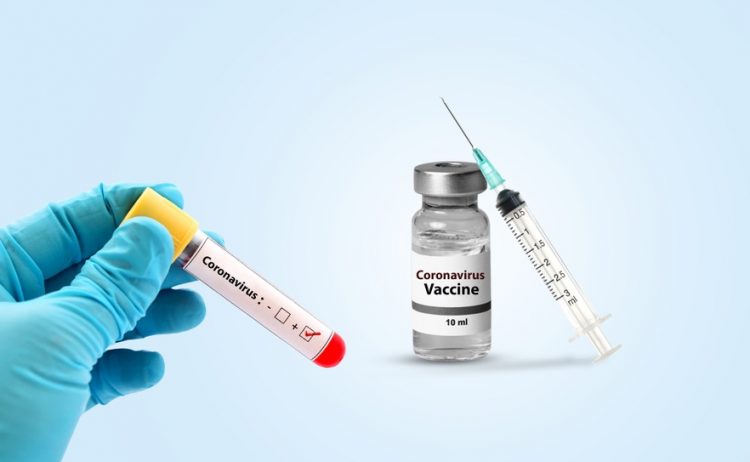"Vaccination is a valuable tool for humanity and has helped eradicate serious infectious diseases in the past," said Professor Zoi. Dorothea Pana. "There is a road race to ensure at the EU level, for all countries simultaneous and fair delivery of vaccines, at the same cost." The Republic of Cyprus, he added, “participates in all the central procedures of the European Commission. It has been preceded by a central process of pre-purchase and ordering of vaccines, a contract has been concluded with six companies in terms of cost, but also the quantity, which is determined according to the population. At the same time, "the ordering process with three companies has been completed and it is expected for two more companies and we are expected to see another company".
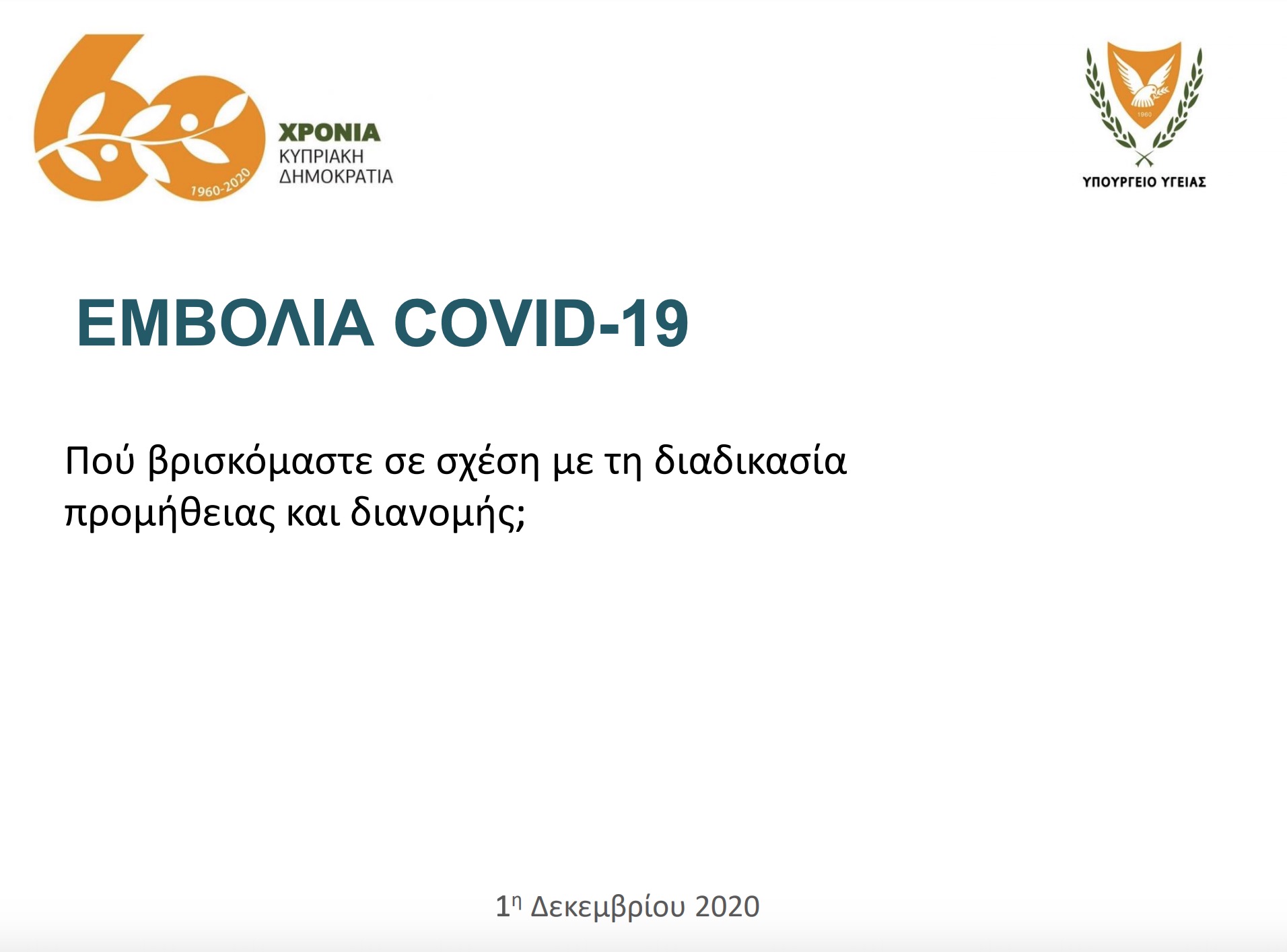
In terms of maintenance, “preparation is done, just as preparation is done in terms of ordering vaccines. In the majority of vaccines, the data provided by the companies say that they consist of 2 doses (with the exception of one company). "Each company has issued a delivery plan for the quantities and specifically for the end of 2020, two companies have stated that they will be ready to distribute the first quantities to European countries."
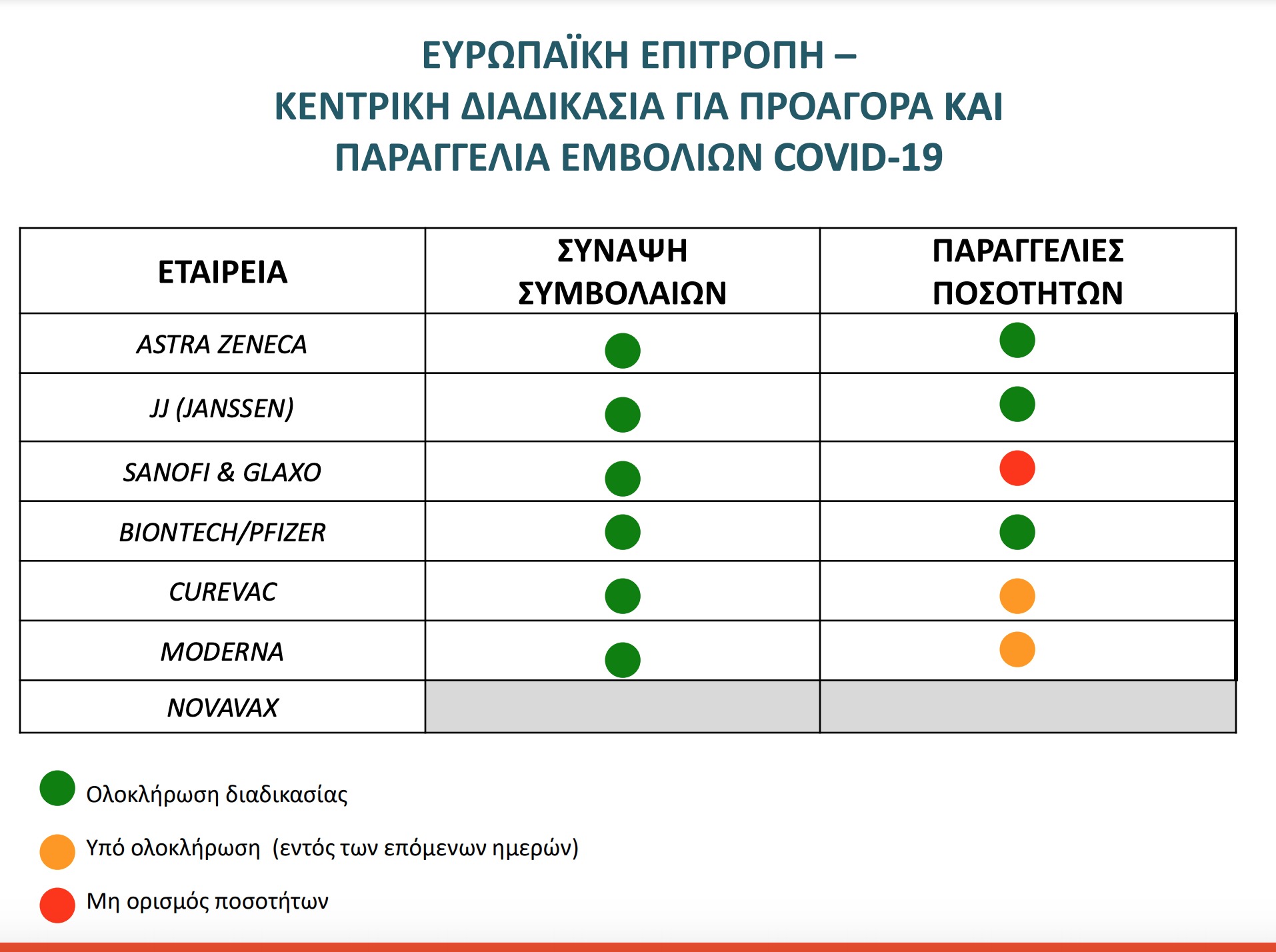
Regarding the evaluation of vaccines, Ms. Pana stated that “all vaccines to be approved must complete all the required procedures. In clinical trials, we emphasize the "phase 3., Where the effectiveness and safety of vaccines are studied and with these data the relevant licensing is granted by the competent bodies, which in the case of the EU is the European Medicines Agency".
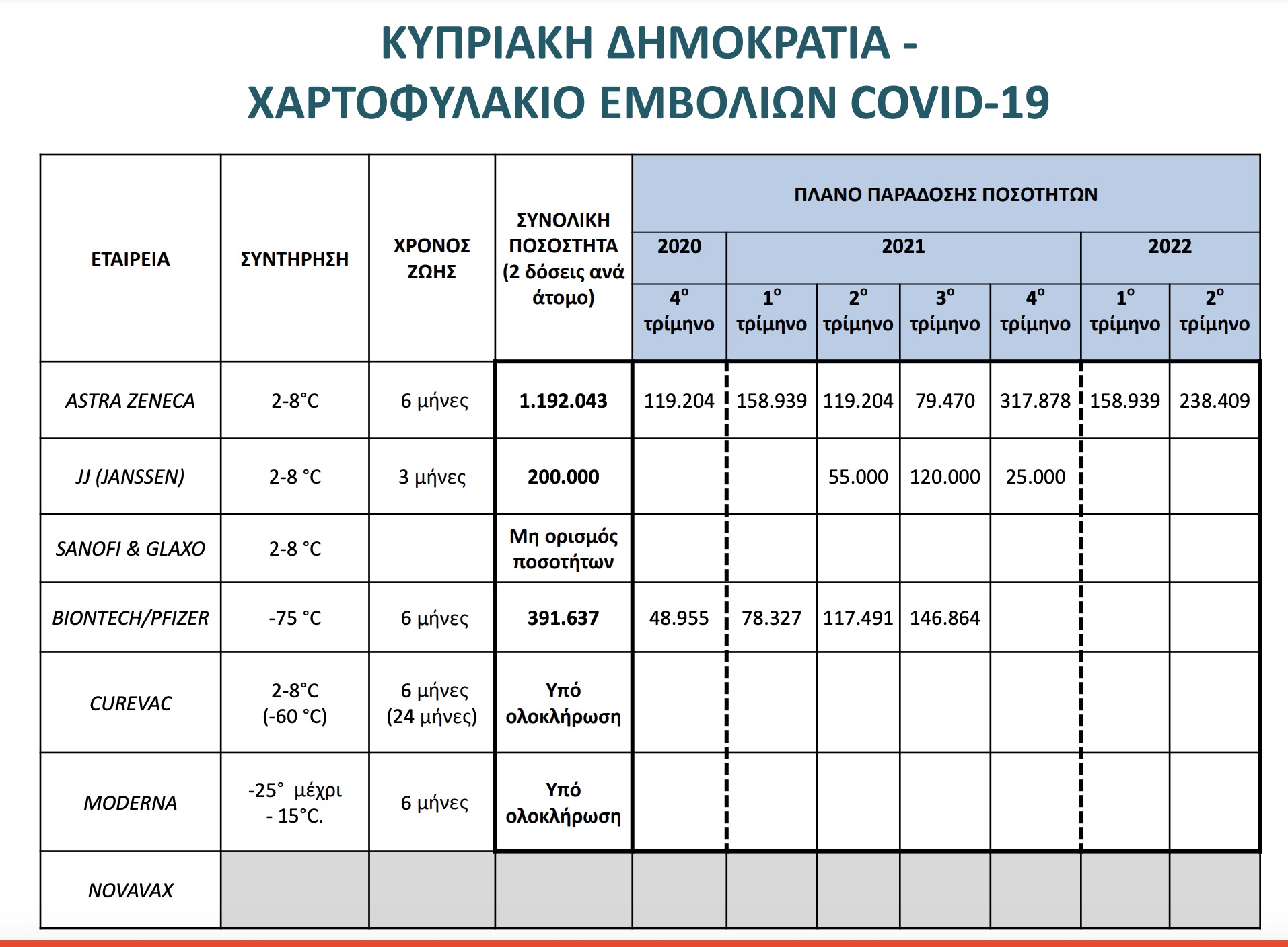
Furthermore, in each EU country in mid-October "instructions have been given on some pillars that need to be secured and these pillars are the prioritization of teams, the provision of structures and infrastructure, the registration and monitoring of vaccines". Also, "instructions have been given for the design training and in this effort he has contributed to the issuance of a document, giving the population groups to which priority should be given and the scientific committee". These groups are "health professionals, adults at increased risk for serious illness, and some front-line workers."
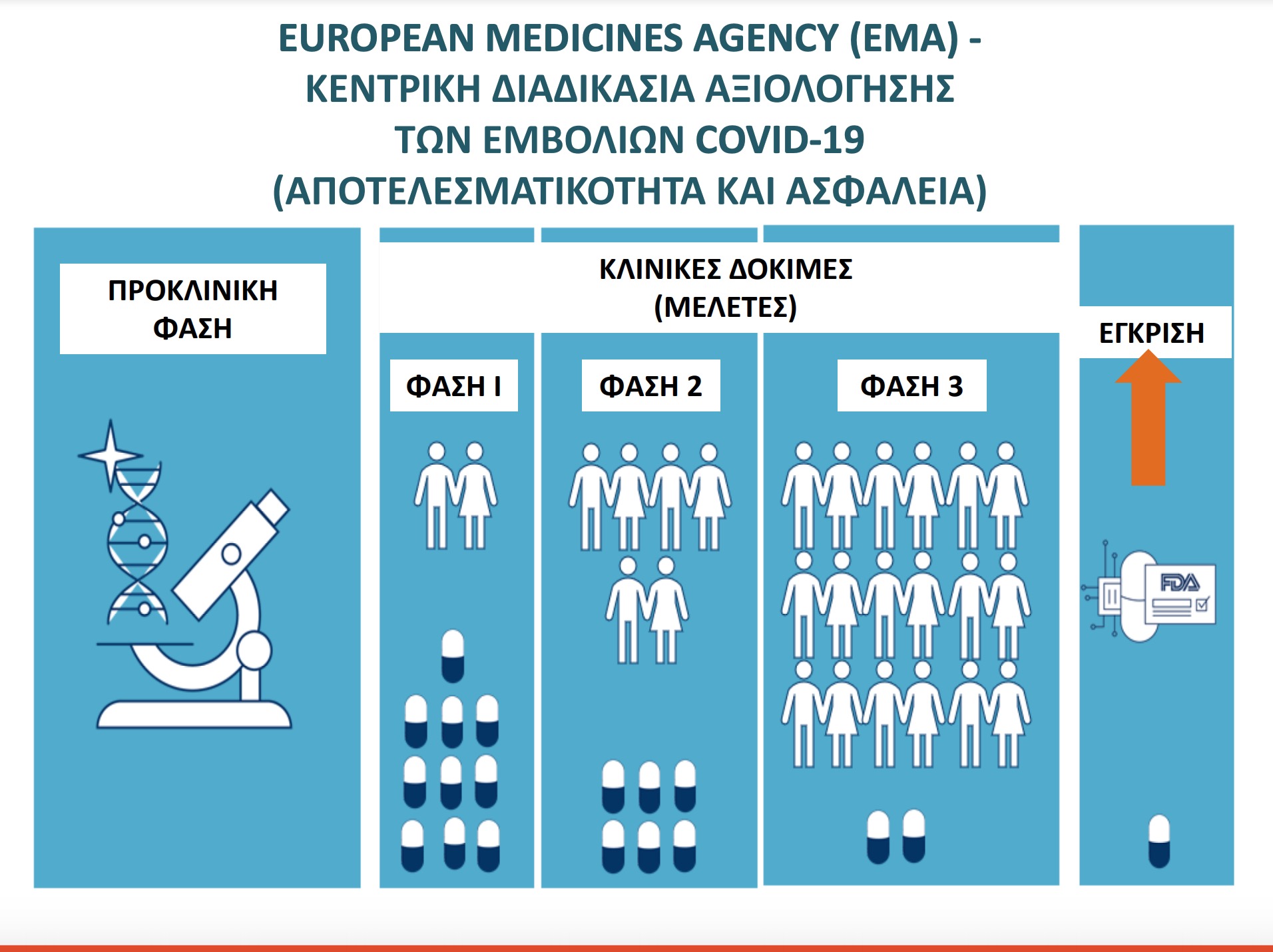
Regarding the time of receipt of the first quantities of vaccines, Ms. Pana stated that “two companies have so far committed to give the first doses of vaccines by the end of December and if all goes well and these vaccines receive the licensing, then after in a few days their mood can begin ".
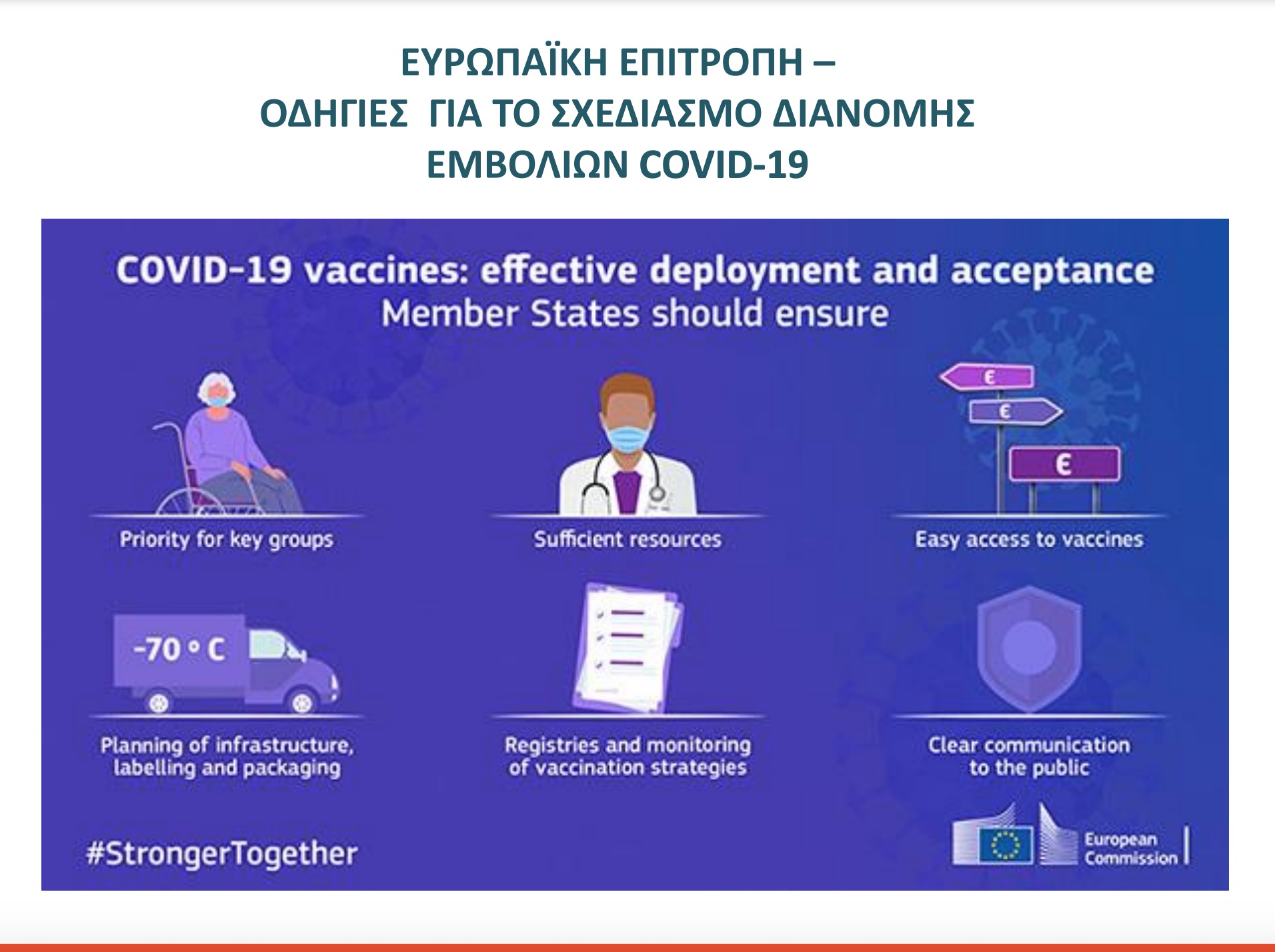
The process of monitoring the efficacy and safety of vaccines, stressed Ms. Pana, "will continue in what we call the post-approval phase. That is, when the vaccines start to be given, we will continue to monitor their safety. This will be done in Cyprus with the help of a special software ".
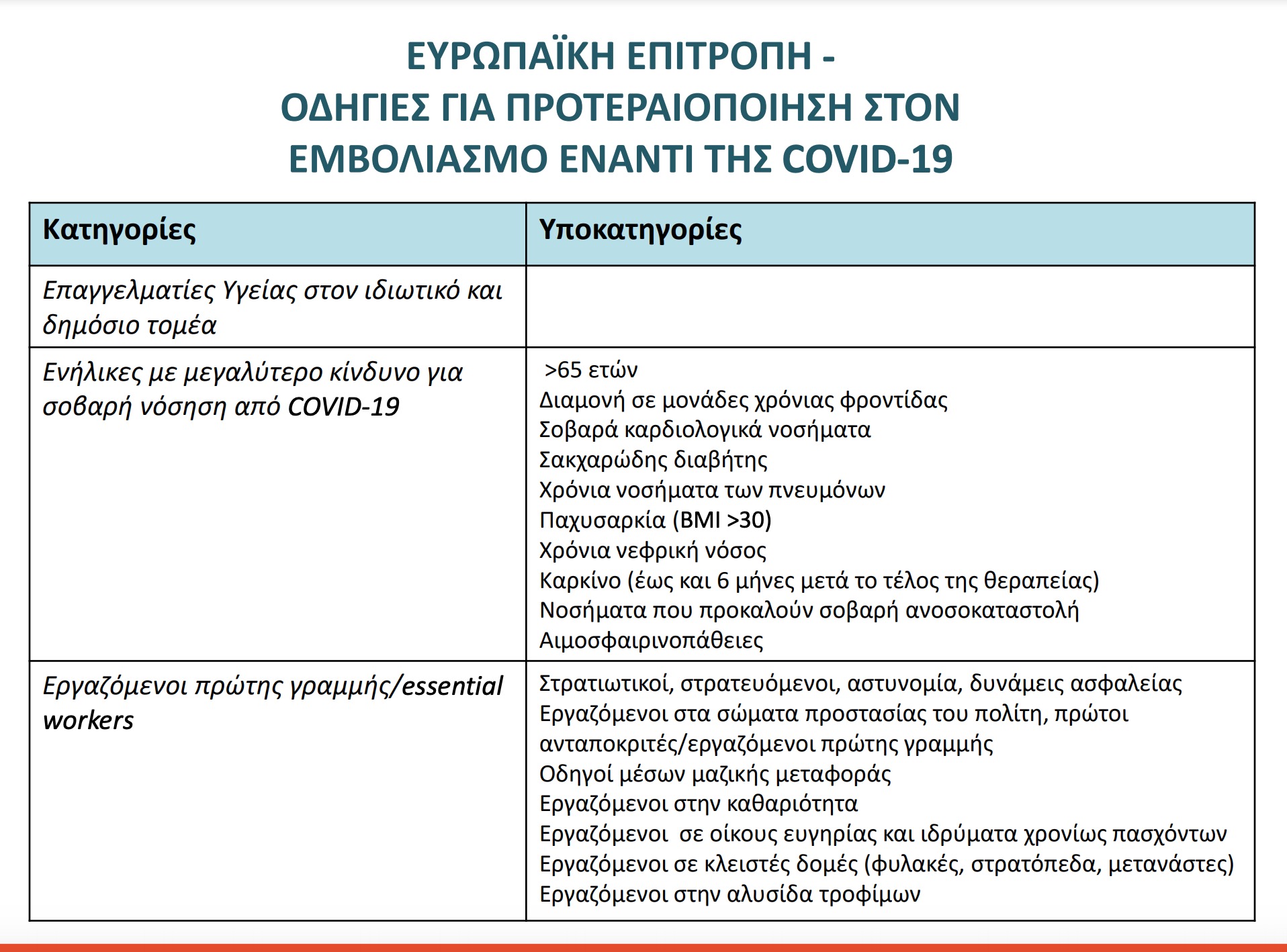
Regarding the vaccination of children, “only two studies have included children and what we now know is that they will not be included in the first groups in the prioritization. However, we expect that in the future, these vaccines will receive new approval for children as well ".
Answering a question about the percentage of the population that should be vaccinated, Ms. Pana explained that “this is a major question for which the original literature stated that 60% to 70% of the population should be covered. But this may not be the case. We are going to cover, as much as possible, the entire population, if the citizens themselves want it ". Beyond that, he added, "when the process begins, we will probably be able to speak more accurately."
The three scientists pointed out that "citizens should be very careful when informed about issues related to the pandemic." Asked about the rumors circulating on the internet about the "intervention" of the coronavirus vaccine in human DNA, Ms. Pana said that "there are three categories of technologies used for vaccines. One concerns the "protein" group. That is, it refers to a specialized protein, the "S" protein, which helps the immune system to "wake up". The second concerns the "vector", ie it is a nanoparticle, which is very similar to the coronavirus, so it "tricks" the immune system and the third concerns what has to do with the MRNA which again wakes up the body. It is not genetic material that can be copied. It does not seem to interfere at the cellular level and in mechanisms, in order to create a problem in the organism ".
The goal, said Ms. Pana, "is not to convince us citizens. The aim is for each of us to understand the importance and contribution of vaccination in the effort to treat the coronavirus "and clarified that" no discussion has taken place so far to make vaccination mandatory ".
In his speech, Professor George Nikolopoulos stated that “it is important to understand that we see a light at the end of the tunnel. The fact that some things have been announced about some vaccines with encouraging messages is very positive. We are waiting to see now the official publications in the reputable scientific journals ".
Concluding, Mr. Nikolopoulos stressed "the role played by vaccines at the beginning of the last century. The life expectancy did not exceed 40 years, now we live on average 80 years. To remind the blessing, which was eliminated, but also other patients and to make the comparison where, on the contrary, in other viruses such as AIDS, where there is no vaccine yet, we are still living an epidemic ".
For his part, Professor Konstantinos Tsioutis described the allegations "about DNA modification" as "at least funny". "Any non-expert who comes out and says these things must also take responsibility for what he says in public. We have to trust the official sources. We emphasize this once again and for us, who belong to this space, it is very easy to refute what some people say and support ".
